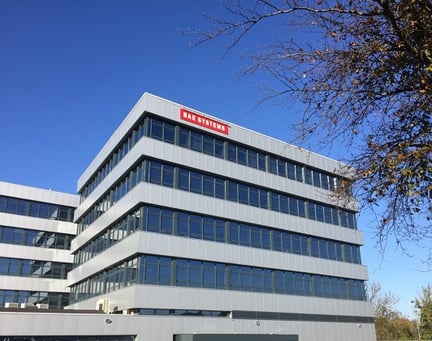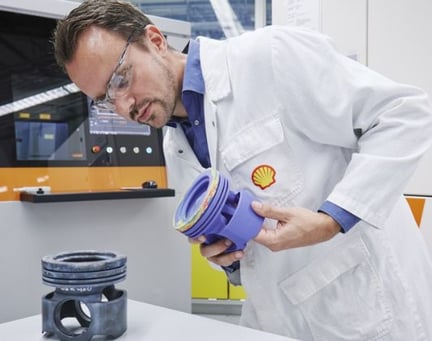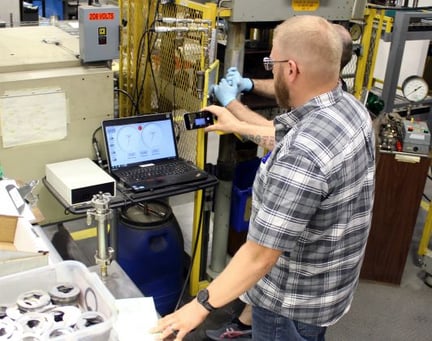Could you generate more valuable insights from your asset data? Dr Philip Knaute, our data science lead, discusses the importance of data science combined with deep industry expertise
‘Data is the new oil’ is only the first part of Clive Humby’s famous quote, 1,2 which distils its important message by continuing “It's valuable, but if unrefined it cannot really be used’.
We are living in the data age. Everything everywhere is becoming connected and data is being generated at an unprecedented rate. And in recent times, big data – data that due to its sheer quantity requires special hardware to process it – has moved into the spotlight. But could this endless pursuit of data become a case of quantity over quality - where accessibility, quality and data that is fit for purpose has lost its value? The real opportunity that many companies are failing to realise, in their pursuit of gathering more and more data, is analysing the data they have already got. And data gets better the more often it is used. It needs to get worked with, refined, understood and used, to gain value. Data can fuel a business and can drive whole industries, but it requires the right environment to fully unleash its power.
Data comes in many different shapes and forms. In databases as structured data, in the form of filed reports, sensor data, health and safety data, CCTV data, survey data, technical data, customer data and many more. But most of this data will have been collected over the years for a specific purpose and rarely with the intention of being used for data analytics applications or to power Machine learning and AI solutions. In fact it is estimated that only 1% of most company’s data is analysed3. The remaining 99% is hidden away on hard drives, databases or in filing cabinets, forgotten - and rightfully named ‘dark data’ - no one really knows where it is, but it is everywhere.
But imagine if you could harness that data and combine it with new data, creating a representation of what is happening to your assets and put in place mitigation and continuous monitoring to take real time actions before an asset breaks down. Imagine optimising supply chains based on insight to ensure just in time delivery of parts or even deploying 3D printing of parts for non-critical assets. And over time with the insight from historical data, combined with the continuous collection of real time data, you can start to build a digital representation of an asset to enable you to enhance and prescribe maintenance techniques. That’s the real value of data and this is where data science comes in. Data science combines analytics and business intelligence, visualisation, machine learning and AI to extract insights and value from data.
But all data science is not the same. Distinctly at LRQA, our approach to data science and analytics combines our data science expertise with our deep industry experience in marine and shipping, energy and oil and gas to help customers gain more insight than ever before. We strongly believe that data science is at its most successful when combined with deep subject matter expertise, no matter what the area of application. That’s why our dedicated team of data science experts works closely with our subject matter experts on all projects.
Because we have over 250 years’ experience of assurance in these industries, we know exactly how your specific assets operate and connect - which means we are better able to identify solutions that solve your challenges. Add to this our digital capabilities and infrastructure and we can enable a step change in the way your business operates. Sometimes it’s big IT infrastructure that is the key component for success. Certainly that’s the case when working with hundreds or thousands of sensors streaming real time data from ships, optimising their fuel consumption for example. Sometimes the key to success is deep subject matter knowledge of gearboxes or converters in wind turbines that enables the pin-pointing of potential performance issues from a data stream in real time. And sometimes it is the extensive experience of one of our data scientists in text analytics that creates results from historical health and safety data that delivers the ‘ah-ha’ effect at a Board meeting. But in most cases it is a combination of all three that enables us to deliver high quality digital solutions.
Data science is revolutionising the way business works as much as it is changing society. But despite some high profile successes of Machine Learning and AI, the race has barely begun. Much of the existing data still has to be mined and utilised. Defining a good data strategy now will be the foundation of success in the years to come.
Notes:
- "Data is the new oil. It’s valuable, but if unrefined it cannot really be used. It has to be changed into gas, plastic, chemicals, etc to create a valuable entity that drives profitable activity; so must data be broken down, analyzed for it to have value.” Clive Humby
- The analogy has been rightly criticised especially for ignoring the scarcity of oil and the reusability of data. Nevertheless, it is useful to highlight the value of Data and the requirement of refining it.
- IDC's Digital Universe Study













